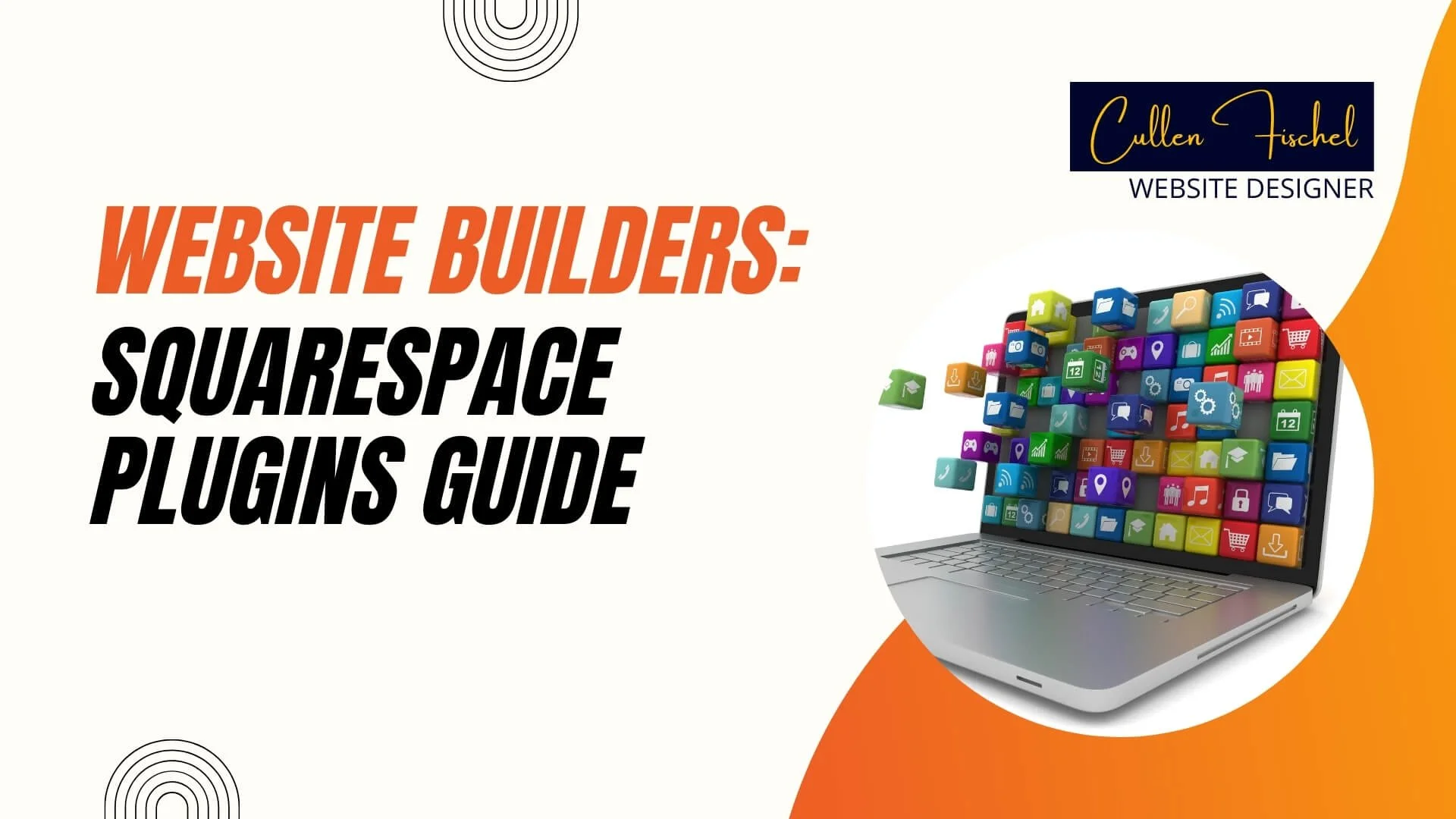A Detailed Review of Website Builders in 2023
A Detailed Review of Website Builders in 2023
Explore the top website builders of 2023 with Cleveland's web design expert, Cullen Fischel. From WordPress to Shopify, discover which platform fits your business needs best. Get insider tips, reviews, and answers to your most pressing questions. Ideal for anyone in Ohio looking to elevate their website design. Start building your success today!
Cullen Fischel | SEPTEMBER 10, 2023 | 5 min. read
5 minute read
By Cullen Fischel, website designer
Key Takeaways
Summary of Top Website Builders
Website builders have transformed the way we approach web design. Here's a quick overview of what you need to know:
WordPress: A flexible platform suitable for almost any type of website.
Shopify: Ideal for e-commerce, with powerful tools to help you sell online.
Wix: Known for its user-friendly drag-and-drop design interface.
Other Notable Mentions: Platforms like Squarespace and Weebly have unique features worth exploring.
The Importance of Choosing the Right Platform
Choosing the right website builder is crucial. The decision can impact:
How easily you can update and maintain your site.
Your website's functionality and appearance.
SEO performance, affecting how your site ranks in search engines.
Your overall budget, considering both initial costs and ongoing expenses.
Insights into Usability and Functionality
The perfect website builder balances usability with functionality. Key insights:
Look for intuitive design tools that don't sacrifice power.
Ensure there are options for customization to fit your brand.
Consider how the platform will grow with your business, offering advanced features when you need them.
Introduction to Website Builders
The Evolution of Website Builders
As a seasoned website designer based in Cleveland, Ohio, I've witnessed the evolution of website builders. In the early days, these tools were basic and limiting. Fast forward to 2023, and website builders are sophisticated platforms that can accommodate both beginners and professionals.
Building a website used to require a deep understanding of coding. Today's website builders eliminate this barrier, providing templates and drag-and-drop functionality that make web design accessible to anyone. These tools are constantly evolving, with new features regularly added to meet the demands of modern users.
Who Can Benefit from Website Builders
Website builders are not just for hobbyists or small business owners. They are valuable tools for a wide range of individuals and organizations.
Entrepreneurs: Quickly launch a professional website without the need for a developer.
Non-Profits: Create a compelling online presence to reach donors and volunteers.
Educational Institutions: Easily update content, integrate multimedia, and connect with students.
Creative Professionals: Showcase portfolios, integrate with social media, and connect with clients.
In my years of experience in web design, I've seen clients from various sectors in Cleveland and beyond leveraging website builders to their advantage.
Why Website Builders are Crucial in Today's Market
In today's fast-paced digital landscape, having an online presence is no longer optional; it's essential. Website builders allow businesses of all sizes to establish an online footprint quickly and cost-effectively.
Imagine needing to make quick changes to your website to respond to market trends or customer feedback. With a website builder, you can make these updates yourself, without waiting for a web designer or developer.
In Cleveland, where the business landscape is as dynamic as anywhere else, utilizing website builders means staying agile and responsive to the local market needs. It's a tool that levels the playing field, allowing smaller businesses to compete with larger ones.
In-Depth Reviews of Top Website Builders
WordPress: A Versatile Powerhouse
WordPress is a giant in the web design space, and for a good reason. Whether you're a seasoned website designer or a beginner, WordPress offers flexibility that's hard to beat.
Usability: With thousands of themes, it's easy to find one that fits your brand. However, it might have a steeper learning curve for absolute beginners.
Functionality: From blogs to e-commerce, WordPress's plugins make it suitable for almost any type of website.
SEO: Known for excellent SEO capabilities, boosting your site's rankings in search engines.
In my Cleveland web design work, WordPress has been a go-to solution for clients needing customized features.
Shopify: The E-Commerce Specialist
If selling online is your focus, Shopify should be on your radar.
Usability: Designed with sellers in mind, it offers a straightforward dashboard to manage products, sales, and customers.
Functionality: Everything from inventory management to payment gateways is included. Plus, it integrates with various third-party apps.
Support: Outstanding customer support and a vast community of users for additional assistance.
Shopify has simplified e-commerce for many Cleveland businesses, streamlining online sales like never before.
Wix: Simplifying Web Design
Wix has become a popular choice for those looking for an intuitive website design experience.
Usability: Drag-and-drop interface means you don't need any coding knowledge.
Customization: Despite its simplicity, Wix doesn't skimp on customization options.
Pricing: A variety of plans, including a free version, allows you to choose what fits your budget.
For those in Cleveland starting their web design journey, Wix has proven to be a reliable and cost-effective option.
Other Notable Mentions: Squarespace, Weebly, and More
Several other platforms are making waves in the web design space:
Squarespace: Known for beautifully designed templates and strong e-commerce functionality.
Weebly: A user-friendly option with a wide range of features, suitable for small to medium-sized businesses.
Others: Platforms like Joomla and Drupal offer robust solutions for those with more technical know-how.
Cullen Fischel's Tips for Success
Identify Your Needs and Goals
Understand Your Audience: Who will visit your site? What are they looking for?
Determine Functionality Needs: Will you need e-commerce, a blog, a portfolio, etc.?
Consider Your Budget: Balance your financial constraints with the features you need.
Choose the Right Platform
Evaluate Usability: Ensure the platform aligns with your skill level.
Assess Support and Community: Look for robust customer support and an active community for help.
Think Long-Term: Choose a platform that can grow with your business.
Focus on User Experience
Responsive Design: Ensure your site looks great on all devices.
Navigation: Make it easy for visitors to find what they're looking for.
Loading Speed: Optimize images and content to ensure quick load times.
In Cleveland, where businesses are constantly evolving, these tips have helped my clients make informed choices in web design.
Ask a Website Designer
-
A: For beginners, platforms like Wix and Weebly are excellent. They offer intuitive interfaces, plenty of guidance, and a range of pricing options. It's about finding what feels comfortable for you and fits your specific needs.
-
A: Yes, but it can be a complex process, depending on the platforms involved. It's wise to carefully evaluate your options upfront to minimize the need for a switch later.
-
A: Most top website builders come with built-in SEO tools. Focus on key areas like meta descriptions, headings, and mobile optimization. Platforms like WordPress offer specialized plugins for deeper SEO customization.






